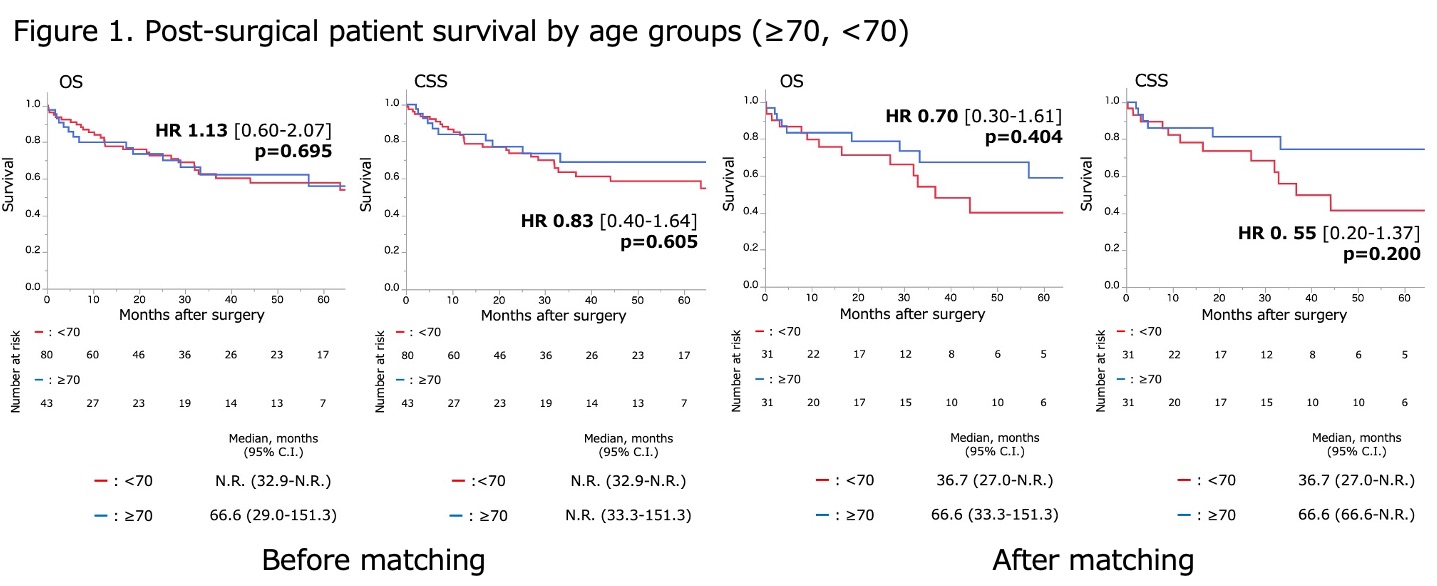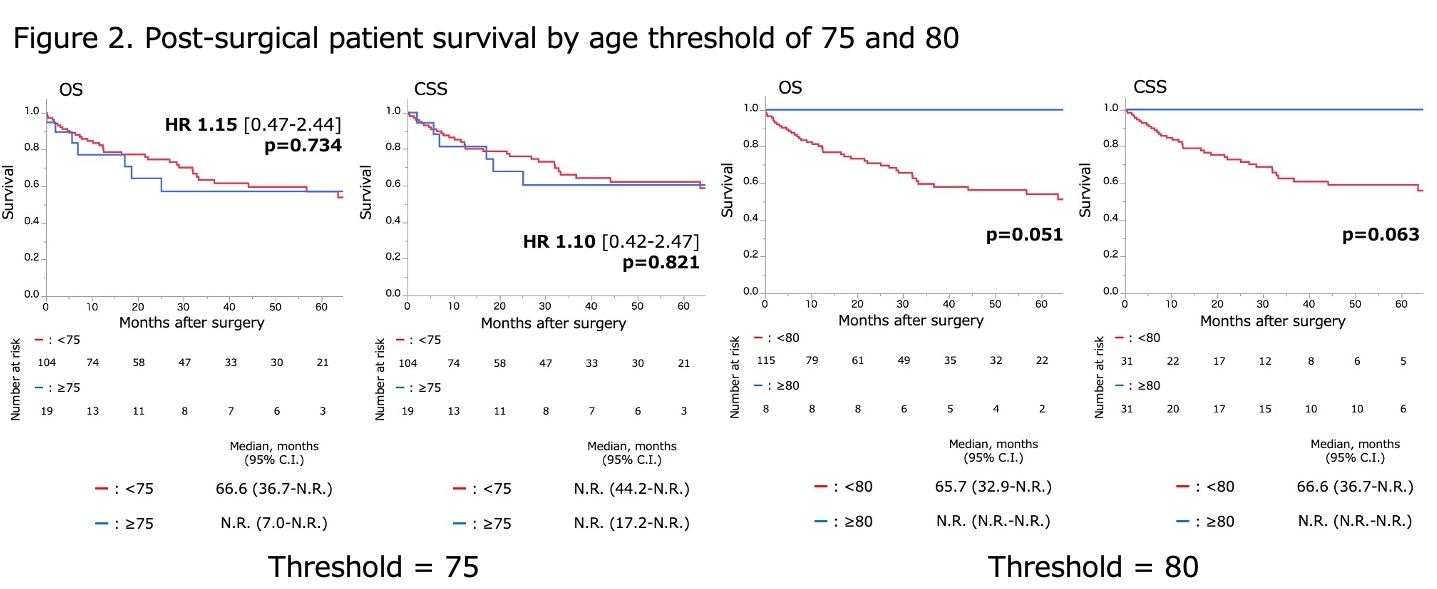Back
Poster, Podium & Video Sessions
Podium
PD56: Kidney Cancer: Localized: Surgical Therapy IV
PD56-12: Surgical outcomes for older patients with renal cell carcinoma and inferior vena cava thrombus
Monday, May 16, 2022
11:20 AM – 11:30 AM
Location: Room 255
Yudai Ishiyama*, Tsunenori Kondo, Hidekazu Tachibana, Hiroki Ishihara, Arakawa, Japan, Kazuhiko Yoshida, Junpei Iizuka, Kazunari Tanabe, Toshio Takagi, Tokyo, Japan

Yudai Ishiyama, MD
Tokyo Women's Medical University
Podium Presenter(s)
Introduction: To compare the surgical and oncological outcomes of older patients undergoing surgery for renal cell carcinoma (RCC) with a tumor in the inferior vena cava (IVC) and those of younger patients.
Methods: We retrospectively evaluated 123 patients who underwent surgery for RCC-IVC at two institutions between 2008 and 2019. We classified them into the =70 years and the <70 years group, based on their age during surgery. The patients’ perioperative outcomes as well as survival (overall survival [OS] and cancer-specific survival [CSS]) were evaluated and compared before and after 1:1 propensity score matching. Sensitivity analyses were performed at age thresholds of 75 and 80 years.
Results: The =70 and the <70 groups comprised 43 and 80 patients, respectively. Most patients in the =70 group demonstrated an American Society of Anesthesiologists score of 2 or 3. They were more likely to have a statistically insignificant high (=3) Charlson Comorbidity index score (16.3 vs. 6.3%) and a lower hemoglobin level (10.4 vs. 11.7 g/dL) than the <70 group. Eighteen (41.9%) and 32 (40.0%) patients had at least one distant metastasis at the time of surgery in the =70 and <70 group, respectively. The complication rates (any grade and grade =3), the length of hospitalization, readmission rates, and mortality were comparable between the groups, both before and after matching (all, non-specific). There was no statistically significant difference in the OS (median 66.6 vs. not reached [N.R.], p=0.695) or CSS (N.R. vs. N.R., p=0.605) between the groups before matching. The OS and CSS results were similar and comparable following matching (both, non-specific). Further, OS and CSS were comparable between the =75 and <75 groups, and between the =80 and <80 age groups, respectively.
Conclusions: The surgical outcomes of older patients with RCC-IVC were not inferior to those of younger patients. With careful patient selection, surgery can still be a treatment option.
Source of Funding: None.


Methods: We retrospectively evaluated 123 patients who underwent surgery for RCC-IVC at two institutions between 2008 and 2019. We classified them into the =70 years and the <70 years group, based on their age during surgery. The patients’ perioperative outcomes as well as survival (overall survival [OS] and cancer-specific survival [CSS]) were evaluated and compared before and after 1:1 propensity score matching. Sensitivity analyses were performed at age thresholds of 75 and 80 years.
Results: The =70 and the <70 groups comprised 43 and 80 patients, respectively. Most patients in the =70 group demonstrated an American Society of Anesthesiologists score of 2 or 3. They were more likely to have a statistically insignificant high (=3) Charlson Comorbidity index score (16.3 vs. 6.3%) and a lower hemoglobin level (10.4 vs. 11.7 g/dL) than the <70 group. Eighteen (41.9%) and 32 (40.0%) patients had at least one distant metastasis at the time of surgery in the =70 and <70 group, respectively. The complication rates (any grade and grade =3), the length of hospitalization, readmission rates, and mortality were comparable between the groups, both before and after matching (all, non-specific). There was no statistically significant difference in the OS (median 66.6 vs. not reached [N.R.], p=0.695) or CSS (N.R. vs. N.R., p=0.605) between the groups before matching. The OS and CSS results were similar and comparable following matching (both, non-specific). Further, OS and CSS were comparable between the =75 and <75 groups, and between the =80 and <80 age groups, respectively.
Conclusions: The surgical outcomes of older patients with RCC-IVC were not inferior to those of younger patients. With careful patient selection, surgery can still be a treatment option.
Source of Funding: None.



.jpg)
.jpg)